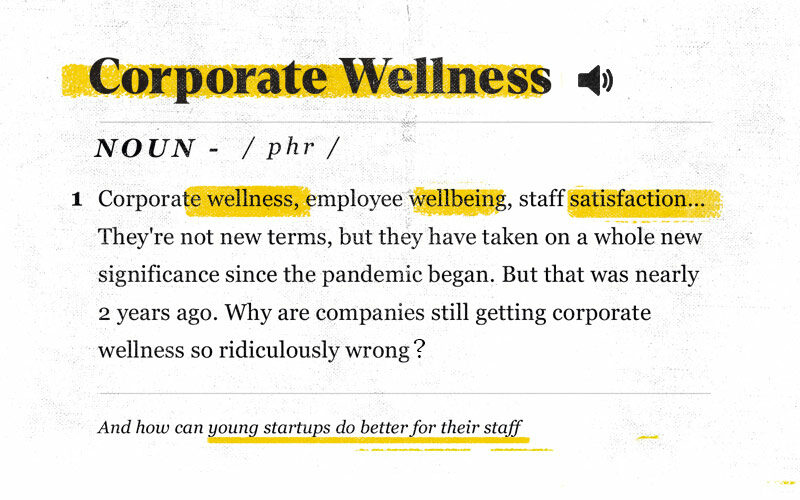You don’t need to do everything within the business you’ve created. You don’t even need to know how. If you did, why bother hiring?
Smart founders hire accountants because it’s too complicated to wade through their own balance sheets. They hire digital marketers when they don’t know how to use social media. They hire cleaners and tradesmen because they don’t know the best ways to look after their offices.
While their employees are doing the day-to-day, the smart founder is taking a forward view. They’re focused on growth, progress, scaling, and new ideas.
There’s a big difference between working ON vs. IN your own business. Working on it entails progressing your goals and bettering your future. Working in it means working like an employee.
You wouldn’t expect the founder of an e-commerce business to be doing packaging or stock checks 5 years in. It’s not because she’s suddenly above packing boxes. It’s because her skills are better utilised elsewhere. In other words, it’s high leverage vs low leverage. And it’s those high leverage multipliers that can make or break your startup.
How do you shift from in to on?
The obvious paradigm shifter in this scenario is delegation. It’s making a start on entrusting daily tasks to other people.
The secret is to stop (the day-to-day). The little jobs that keep the wheels turning are quite enjoyable sometimes, aren’t they? Personally signing off emails to grateful customers. Sweeping the shop floor. It’s cosy and safe. And after all, you do it best. Right? Maybe, but that needs to change. It’s time to start letting go. Start gradually, because you might have to…
Let people do things badly. People learn best by being allowed to make mistakes. Just doing it yourself rather than watching someone doing it badly might seem efficient, but it will take your employees much longer to learn. They will also not tell you when they f*** up if they’re afraid of your reaction. That said, you should…
Take action if they’re doing things badly for too long. This could mean training, it could mean management tactics like positive reinforcement, or it could mean finding someone else. You will have to spend time honing your team. You’ll grow fond of people, your judgement will get clouded, and when you have to let them go it’ll be painful. But you’ll never be able to let go unless you have an elite cohort of employees you can trust, who listen, improve with time, and who get your mission.
The $10 vs. $10,000 principle
Ex-finance guy turned blogger Khe Hy talks about $10 vs. $10,000 work.
It’s about how you spend your time. You could spend an hour hard-pitching a customer to sell one item, or you could spend an hour on high-level research, an innovation session, or masterminding marketing strategies that will accumulate to making you thousands.
You also have the middle ground work – the work that might make you a $100 or a $1000 in the future. This isn’t petty cash – it’s the bread and butter of your company. Things like writing a business proposal or seeking new stockists fall into this category.
The problem is, they all need doing. And there are only so many hours in the day (even at startups).
The $10, $100, $1000, and $10,000 figures are force multipliers. Prioritise which one you’ll focus on at any given time, and delegate the others to the workers that can handle them best. In your seed stage, you’ll have to switch between them. But in a mature business, the only person in your company who can make you tens of thousands is you.
Companies who don’t free up the time to do them will end up treading water or stagnating.
How far removed is too far removed?
The key is to create cyclical rather than top down systems. The new departments you build must be autonomous and self-sufficient. Finding top talent is just one aspect – you need to find top management to train, support, and maximise them.
You’ll then be dealing with one point of contact rather than each employee as an individual. That’s not to say you shouldn’t engage with them and be a presence around your HQ. But it will remove you from more minor concerns and allow you to transfer process ownership.
That said.
As you grow and your tasks become more tunnel-visioned on the big picture, you’ll naturally lose sight of the small stuff.
And that’s okay – you don’t need to know the roles of your subordinates inside and out. If someone leaves, you don’t step in – you hire someone else. But you do need to know:
- What you’re hiring for and the level of education and experience required
- The keystone deliverables they’re responsible for
- How to access all of the files and resources that person managed
- Why that person left, and how you can make the experience better for the next one.
If you’ve lost touch, spend a morning or a day sitting down with each employee and have them top-level train you in their role. This will help prepare you for all of the above. Having employees regularly shadow their coworkers also generates a strong cross-organizational awareness. It may be a godsend if you’re suddenly hit with a spate of staff notices.
It’s not just the financial rewards you’re chasing by shifting from in to on. Ultimately, it’s freedom. For some founders this is the original goal – hiring staff and managers to run the business for them so they can collect their pay cheque from a beach in Bali.
If it’s acquisition you’re looking for, you’ll need to show the ship can run without you. Even for passionate founders who want to remain at the helm, personal and/or family time will ultimately become important as a salve to the outsized workload and stress that foundership demands.











